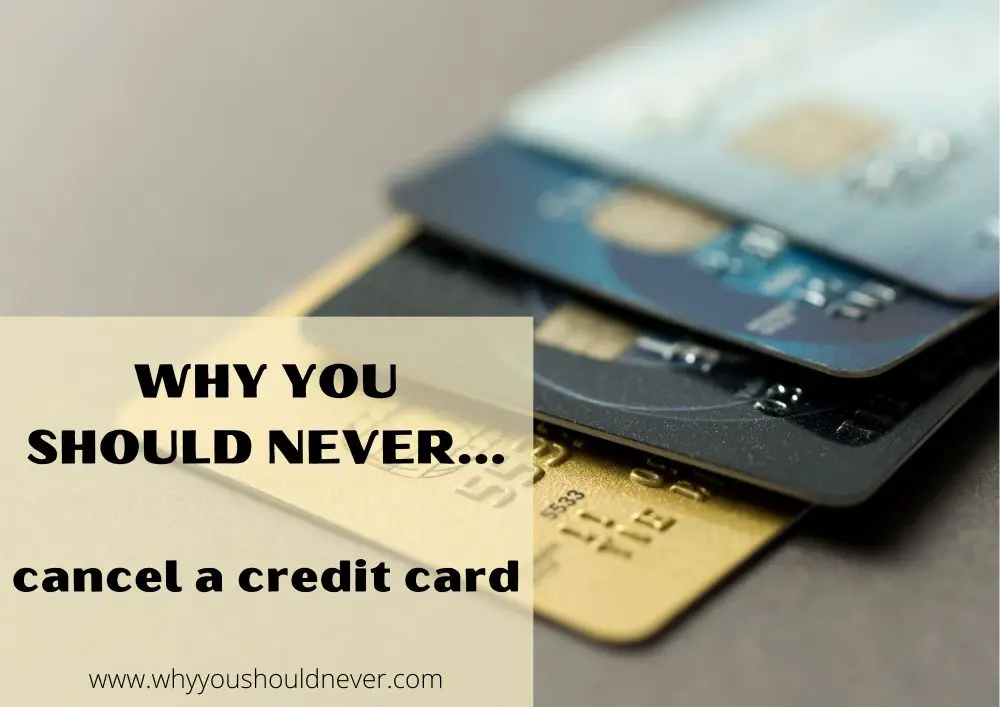![]()
Why You Should Never Cancel A Credit Card
You may be thinking of canceling your credit card because you have no balance left, or it’s been a long time since you used it. If you’re someone who has been reckless with credit in the past, then canceling might seem like the right thing to do.
However, there are a number of reasons why canceling your card could actually do more harm than good when it comes to your financial future. In this post, we’ll explore some of them.
Your credit score will be negatively impacted
Your card’s age and the length of time you’ve had it is an important factor in your credit score, so if you cancel now, that could negatively affect your rating for years to come.
It also affects whether other lenders might see you as a safe bet or not when they’re deciding who gets approved for loans and mortgages.
You might need it for an emergency
Canceling your card might seem like a good idea, but what will happen if there’s an emergency where you need to use the card for something important and essential? Not having quick access to funds could throw your life into chaos.
Imagine that your car breaks down, or you need emergency medical care. These are things your credit card could take care of; but if you’ve canceled it, you’ll need to come up with another way of obtaining the money, and you’ll need to do so in a hurry.
Some direct debits might still be linked to it
There could be subscriptions or direct debits that are still linked to your canceled card – subscriptions for which you forgot to update the payment details. If you’re not careful, they will stop the moment that your card is canceled.
This could mean that you miss payments on important services or purchases, which in turn could lead to your credit score taking a hit.
Some banks may charge fees if the account is closed early
Canceling your card could be more costly than you think. Some banks may charge a fee to close the account, and if you have an outstanding balance on that credit card, then they might also charge interest for up to six months after cancellation.
You’ll miss out on rewards points and other benefits
If there are any reward programs linked to your credit card, you may lose out on points or other benefits if the account is canceled.
Canceling your card means that you won’t be able to build up reward points from the bank or credit union where it is issued, which could significantly reduce any savings you get on major purchases like plane tickets and hotel stays.
Your credit limit will be reset
Over time, through regular use, and providing you make your payments on time, your credit limit – the amount the card issuer gives you to spend – will increase.
Once you cancel that card, however, should you reapply for a new one in the future, you’ll essentially have to start from scratch and work your way back up to your old limit, which could take years.
Of course, for some people, canceling their credit card might be the logical thing to do; but if your reasons for doing so have anything to do with debt management, then maybe there are other ways of tackling this without canceling your card.
Ways to regulate your finances without canceling your credit card(s) altogether:
-
lower your credit limit – if you’re concerned with having too much “free” money, consider asking the bank to lower your limit to something more manageable
-
look for zero interest credit cards – these usually give you a long time to make repayments, which might be just what you need to get back on your feet
-
don’t spend what you don’t have – only use the card if you have the money in your bank account to cover the purchase
-
if you have more than one card, instead of canceling all of them, consider consolidating your debts onto one card in order to make repayment easier
